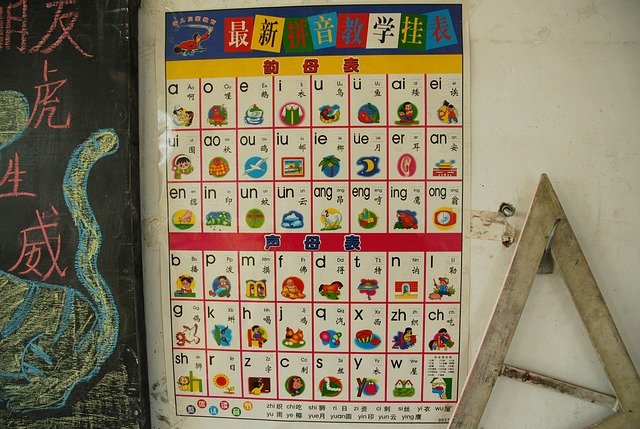How long does it take to learn Chinese? This is a very common question posed by beginner Mandarin learners. The answer “it depends” isn’t very satisfying, so in this article, we’ll try to give you a rough idea of how much time you need to spend to reach your Chinese language goals. To help you speed up the process, we’ll also give you tips on how to learn Chinese words fast.
How Long Does It Take to Learn Chinese: Milestones
Different Chinese students have different goals, and these goals take different amounts of time to achieve. One way to gauge how long it takes to reach a certain level of language proficiency is by estimating how many total words you have to know to get there. We can then estimate how long it takes to learn those words.
Keep in mind that simply accumulating more vocabulary words—while valuable for your learning—must be accompanied by supplemental practice to be effective. As Chinese is one of hardest languages to learn, you must also practice your reading, writing, listening, and speaking skills, or you won’t have any opportunities to practice using the vocabulary you’re learning!
With that in mind, here are some milestones that you should pass as you learn more Chinese words. These levels of advancement operate under the assumption that, while you’re learning more vocabulary words, you are simultaneously working on your reading, writing, listening, and speaking skills. Increasing the number of words you know will not, on its own, get you to Mandarin fluency.
150–300 Words
Milestones:
- Passing HSK 1*
- Passing HSK 2
*This article references the “old” HSK (that is still being used in 2021), not the “new” HSK that was announced in 2021 but is not yet in use. We use the “old” HSK as benchmarks as most students are more familiar with them at this point in time.
When you’re learning your first 150 to 300 words, you’re really laying the foundations for your future skills. At this point, you are gaining familiarity with the language, but will struggle to use it much outside of the classroom.
600 Words
Milestones:
- Elementary conversational abilities
- Passing HSK 3
Once you know about 600 words, you should finally be able to express yourself outside of classroom settings. You still rely on very simple vocabulary and grammatical structures, but you definitely feel the rewards of finally getting to use your skills.
1,200 Words
Milestones:
- Functional conversational abilities
- Passing HSK 4
At around 1,200 words, you should experience a big jump in how much you’re able to use Chinese outside the classroom. You should be able to express personal opinions, understand conversations around you, run errands in Chinese, and order at restaurants. Inside the classroom, you should be able to converse easily with your Chinese instructors. At this point, all the material you’re learning is still relevant to everyday life, and you’re learning new Chinese words quickly.
2,500 Words
Milestones:
- Versatile conversational abilities
- Elementary reading proficiency
- Passing HSK 5
At 2,500 words, your Chinese language skills are functional for almost all daily life situations. You are firmly out of the beginner stage, and you’re able to interact naturally with others in Chinese-speaking environments.
Nevertheless, you’re aware of gaps in your vocabulary that set you apart from native speakers. You should be able to converse about pretty much any topic, but you may find that some conversations go beyond your level of preparation. You may be able to read some news articles, but with some difficulty. Books written for adults are still out of reach. You can watch TV shows without a dictionary by your side, but watching the news can sometimes stump you.
5,000+ Words
Milestones:
- Advanced conversational abilities
- Reading proficiency
- Passing HSK 6
Once you’ve learned 5,000 or more words, you’re pretty much able to fully interact with native Chinese speakers and Chinese-language media. You might need to bring a dictionary along with you for more technical language, but you’re basically prepared for the vast majority of situations that aren’t overly technical in nature.
You should be able to verbally express yourself with sophistication and precision, understand spoken Chinese in most situations, and actively engage in conversation with groups of native Chinese speakers. You could even give a speech in Chinese, given some time to prepare.
How Fast You Can Learn Chinese: Estimates and Evidence
Now that we’ve laid out these milestones, let’s return to the original question: how long does it take to learn Chinese?
Different study techniques yield vastly different outcomes in terms of learning speed. For instance, if you study Chinese words by learning how to handwrite them, you could spend an extra thousand hours, only to find that handwriting isn’t required outside the classroom. Focusing on recognition, and using a spaced repetition learning platform, you could learn the 5,000 words in less than two years (some have done it in even one!)
As we see in the above milestones, if your goal is to be prepared for everyday situations, then you’ll need to learn about 2,500 words. We know that students who use Hack Chinese for 15–20 minutes per day generally end up learning 400–600 words per month. This works out to about ten hours of vocabulary study per month. In four to six months, these students will know around 2,500 words.
If four to six months seems like a short amount of time to learn Chinese, that’s because it is. Of course, in addition to using Hack Chinese, you’ll also need to spend at least as much time practicing your reading, writing, speaking, and listening skills. Fortunately, learning many words quickly can dramatically accelerate the rest of your language learning methods.
Tips for Learning Chinese Words Fast
To speed up your studies even more, here’s the best way to learn Chinese characters: concentrate on retention. If you keep forgetting the words you’ve already studied, you’ll find yourself always taking two steps forward and one step back. There are several ways to avoid this problem and make sure your vocabulary retention is on track.
- Have short and frequent study sessions. You can even learn Chinese 5 minutes a day. The advantages of this strategy are twofold. First, spreading out your study sessions into manageable lengths of time will help you make studying Chinese an everyday habit. Second, it will help you remember what you study long-term.
- Use spaced repetition software to fight the forgetting curve. Spaced repetition techniques will ensure that you review the words you’re at risk of forgetting, and it will also make you remember them for longer.
- Use effective tools like Hack Chinese. Hack Chinese’s spaced repetition algorithm will curate your study session content for you to ensure that you’re retaining the vocabulary you’ve already learned before you move on to new lexical territory.
Author:
Daniel Nalesnik, Founder of Hack Chinese
Daniel Nalesnik is the founder of Hack Chinese, a smart platform for learning Chinese vocabulary. Daniel moved to China in 2009 for a year of full-time Mandarin immersion at Peking University (in Beijing) and Fudan University (in Shanghai). In the years since he has worked with teachers throughout China to discover what learning methods are most impactful for Mandarin Chinese learners? This experience inspired Daniel to found Hack Chinese, a spaced-repetition platform for learning Mandarin Chinese.
Author’s photo:

Author’s LinkedIn Page: https://www.linkedin.com/in/daniel-nalesnik/

